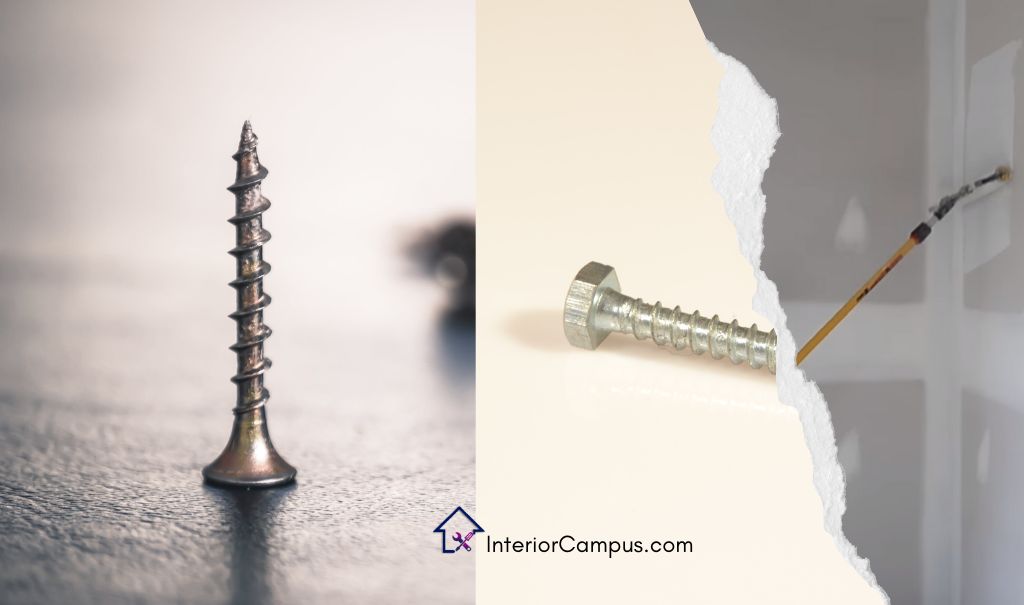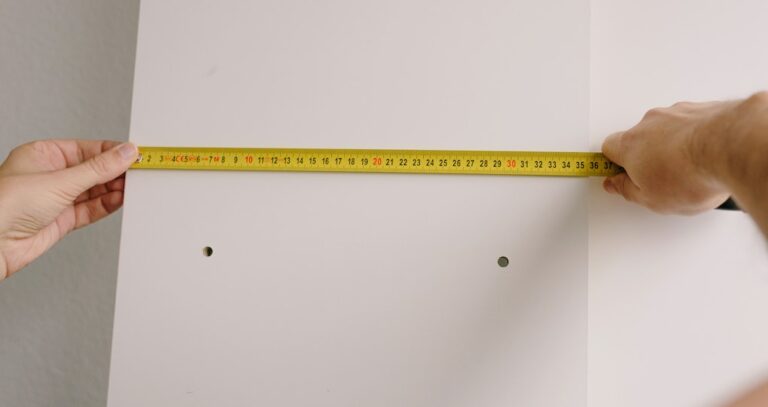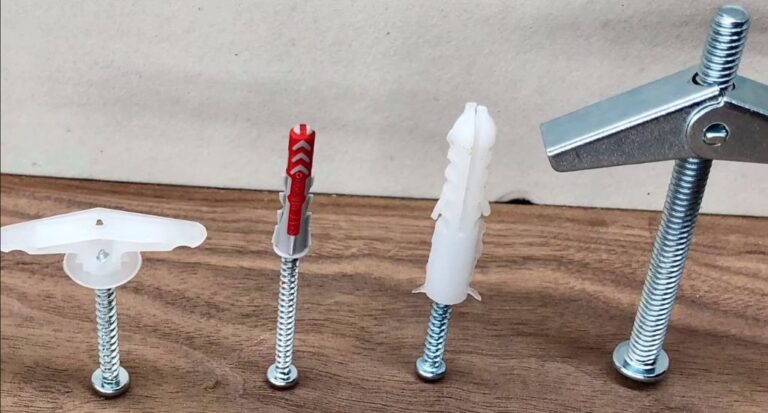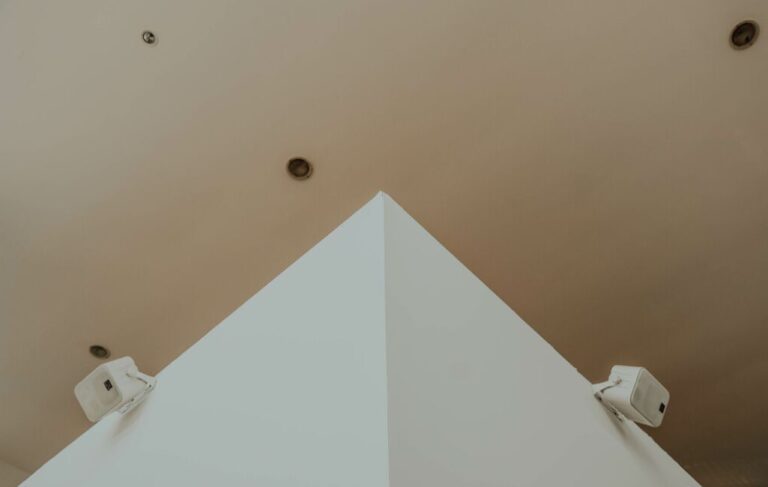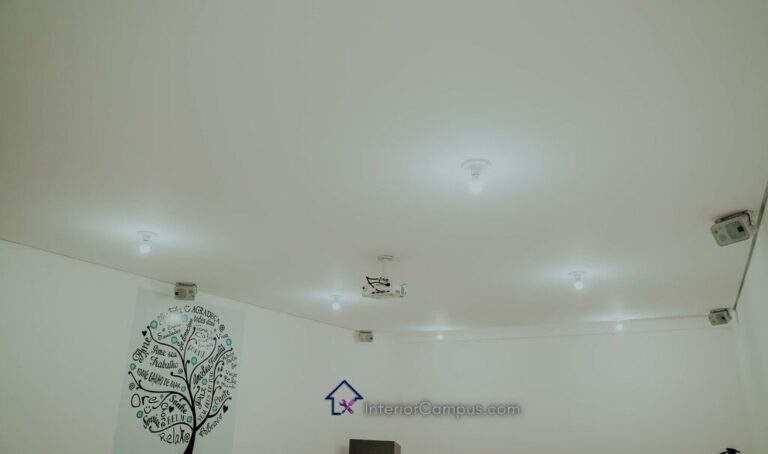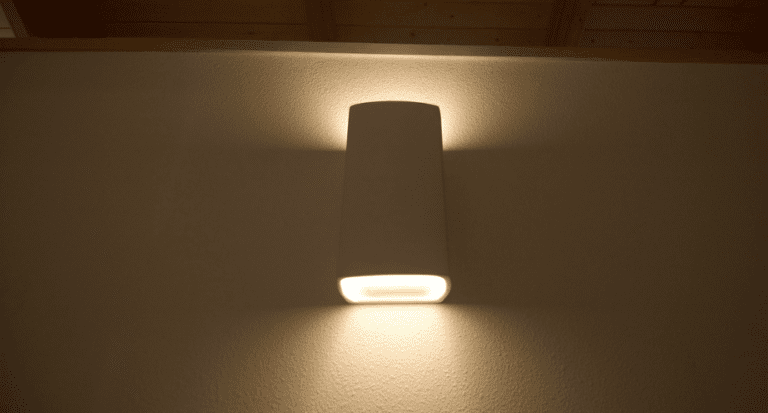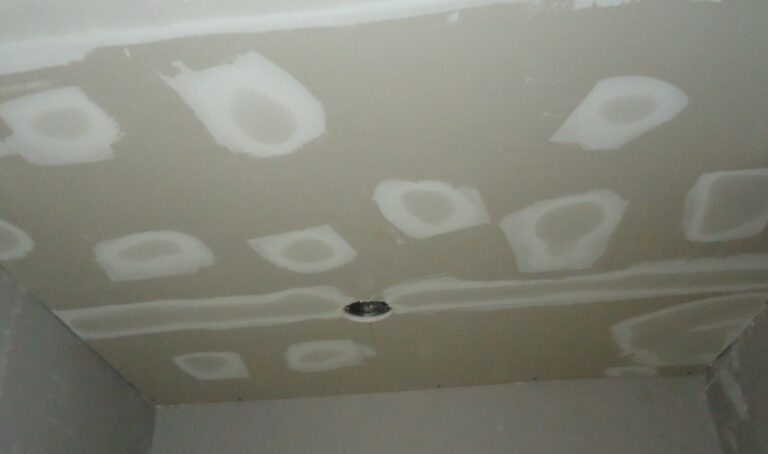Screws vs Drywall Screws – Choosing the Right Fastener for Your Interior
When it comes to fastening materials, screws, and drywall screws play distinct roles, each tailored for specific applications. Screws vs Drywall Screws – Choosing the Right Fastener for Your Interior.
If I find myself working with wood, screws are undoubtedly my best bet. Their design and functionality align perfectly with wood-based projects, ensuring a reliable and robust connection. However, when it comes to working with delicate drywall, drywall screws are the clear winner, providing the finesse and precision needed for seamless installations.
Screws, with their pointed tip, effortlessly pierce through wood, allowing for easy penetration. The spiral thread then takes charge, firmly gripping the wood as I turn the screw. This combination results in a sturdy joint capable of supporting substantial weight, ensuring durability and stability.
On the other hand, drywall screws are equipped with a blunt tip to safeguard the delicate nature of drywall. Their finer thread provides an enhanced grip, effectively preventing the screw from loosening over time. This ensures that my drywall remains intact and free from unsightly bulges or cracks.
Here are a few additional tips to guide you in choosing the right screw:
- Consider the material thickness: Ensure that the chosen screw is long enough to penetrate the material at least halfway, providing ample strength and stability.
- Opt for the right size: Select a screw that is slightly smaller than the hole you’ve drilled. This allows for a secure fit and prevents any unnecessary damage.
- Utilize the proper drill bit: A sharp drill bit makes all the difference, facilitating smooth and effortless screw insertion.
- Avoid overtightening: It’s crucial not to go overboard when tightening the screw. Overtightening can lead to material damage or even cause the screw to break. Exercise caution and find the right balance.
Screws vs Drywall Screws
Are you ready to dive into the world of screws vs drywall screws? Excellent! In this informative blog post, we’ll explore the distinct features of these fasteners, helping you choose the perfect one for your interior projects. So let’s buckle up our tool belts and embark on this enlightening journey!
When it comes to screws and drywall screws, they may seem like distant cousins, but they each have their unique characteristics. Let’s unravel their secrets and get acquainted with their key features.
Comparing and Contrasting
Now that we’ve explored the distinctive features of screws and drywall screws, it’s time to put them side by side and see how they measure up. In this section, we’ll delve into the exciting world of comparisons and contrasts.
From pointiness to head styles, we’ll examine the key aspects of these fasteners and highlight their differences. So, grab your magnifying glass and get ready to uncover the nuances of screws and drywall screws in our thrilling comparison adventure!
1. Pointiness: Regular screws, oh how sharp they are! With their pointy tips, they can effortlessly penetrate various materials, like a hot knife through butter. On the other hand, drywall screws come with a self-drilling tip, making them the superheroes of hanging lightweight materials—no pre-drilling required!
2. Material: Screws come in an assortment of materials, offering a smorgasbord of choices. From the rugged strength of steel to the corrosion-resistant charm of stainless steel, you can pick your heart’s desire. As for drywall screws, they are typically made of hardened steel, ready to tackle the mighty task of securing drywall panels.
3. Threads: Ah, the threads! Regular screws flaunt deep threads that grip onto wood or metal like a determined koala clinging to a eucalyptus tree. But drywall screws have a different game plan—they boast fine threads that prevent the dreaded cracks in drywall and ensure a secure hold.
4. Head Style: When it comes to head style, regular screws are the chameleons of the fastener world. They can sport flat heads, round heads, or even pan heads, adapting to any situation. Drywall screws, on the other hand, have bugle heads—imagine a bugle-playing screw! These heads help the screws to sit flush with the drywall, leaving your walls looking smooth and pristine.
Now that we’ve uncovered the secrets of these fasteners, let’s move on to the next section where we’ll discuss the pros and cons of each type of screw. But before we do, let me share a little joke: Why did the screw go to therapy? Because it had a lot of hang-ups! Okay, enough fun.
| Features | Screws | Drywall Screws |
|---|---|---|
| Pointiness | Sharp tips for easy penetration | Self-drilling tips for lightweight materials |
| Material | Steel, stainless steel, brass | Hardened steel for securing drywall panels |
| Threads | Widely spaced, deep threads | Fine threads to prevent drywall cracking |
| Head Style | Flat, round, pan heads | Bugle heads for countersinking |
Remember, the choice between screws and drywall screws depends on the specific requirements of your project. Use regular screws for wood, metal, or plastic applications that require a strong grip. Drywall screws shine in drywall installations, attaching corner beads, and mounting lightweight fixtures without the need for pre-drilling.
Weighing the pros and cons of screws and drywall screws. It’s time to put on our analytical hats and assess the advantages and drawbacks of each type. Brace yourself for a detailed examination that will empower you to make informed decisions for your interior projects.
Screws
Let’s kick off with the trusty screws. These versatile fasteners come with a range of benefits, making them a popular choice for various applications:
Pros:
- Robust Grip: Screws possess deep threads that create a strong grip in wood, metal, or plastic, providing enhanced structural support. You can rest assured knowing that your project is securely held together.
- Material Compatibility: With screws available in different materials such as steel, stainless steel, and brass, you have the freedom to choose the ideal option for your specific requirements. Whether it’s strength or corrosion resistance you seek, there’s a screw material to match your needs.
- Lengths, Diameters, and Head Styles: Screws come in a delightful array of sizes and head styles. Whether you need a longer screw for a substantial project or a specific head style to accommodate your hardware, screws offer versatility and customization.
Cons:
- Pre-Drilling May Be Required: Depending on the material you’re working with, screws might demand pre-drilling to prevent splitting or cracking. While this adds an extra step, it ensures a smooth and hassle-free installation.
- Not Specifically Designed for Drywall: Screws excel in various applications, but when it comes to drywall, they may not be the ideal choice. Drywall screws have specific features tailored for this material, ensuring seamless installation without compromising its integrity.
Drywall Screws
Now, let’s shine a spotlight on our specialized fasteners and drywall screws. These unsung heroes of drywall installations bring unique advantages to the table:
Pros:
- Self-Drilling Tip: Drywall screws come equipped with self-drilling tips, eliminating the need for pre-drilling holes in drywall. Say goodbye to time-consuming preparations and say hello to quick and efficient installations.
- Fine Threads for Drywall: The fine threads on drywall screws are purposefully designed to adhere to drywall and minimize the risk of cracking. They ensure a secure hold without compromising the integrity of your beloved walls.
- Bugle Heads for a Flawless Finish: The bugle heads on drywall screws enable them to sit perfectly countersunk just below the surface of the drywall. This seamless finish allows for effortless mudding and sanding, resulting in flawless walls.
Read this, Which Screw to Use for Drywall? For 1/2 inch, 5/8 inch Drywall?
Cons:
- Limited Application: While drywall screws excel in their specific domain, they may not be suitable for applications that involve heavy loads or materials other than drywall. It’s essential to evaluate the requirements of your project to ensure you’re using the appropriate fastener.

Now that we’ve dissected the pros and cons of screws and drywall screws, it’s time for a lighthearted moment: Why did the screw enroll in therapy? Because it had too many hang-ups! Alright, let’s get back to business.
I’ll provide you with practical examples of when to use screws and when to opt for drywall screws. So stick around, my DIY enthusiasts, as we continue our journey toward becoming masters of fastening!
Practical Examples of When to Use Screws and When to Opt for Drywall Screws
Now that we have a firm grasp on the pros and cons of screws and drywall screws, let’s dive into some practical examples to help you determine when to use each type. These real-life scenarios will serve as our compass, guiding us through the winding paths of interior projects. So, grab your tool belt, and let’s embark on this adventure of decision-making!
Screws
Screws prove their mettle in various situations, offering reliability and strength for a multitude of applications. Here are some instances where screws are your trusty companions.
- Furniture Assembly: When putting together that new bookshelf or assembling a sturdy bed frame, screws are your go-to fasteners. Their strong grip ensures the longevity and stability of your furniture pieces.
- Structural Projects: Whether you’re building a deck, constructing a wooden frame, or securing beams, screws are the backbone of structural integrity. Their robust grip provides the necessary support to keep your project standing tall.
- Attaching Hardware: When it’s time to hang that fancy mirror or mount a shelf, screws are the heroes that come to the rescue. With their customizable lengths and head styles, you can effortlessly secure hardware to your walls, making your space both functional and stylish.
Remember, pre-drilling may be necessary depending on the material you’re working with, ensuring a smooth installation process.
Drywall Screws
Drywall installation requires finesse and efficiency, and that’s where drywall screws take center stage. Let’s explore some instances where these specialized fasteners shine:
- Hanging Drywall Panels: As the name suggests, drywall screws are specifically designed for securing drywall panels. Their self-drilling tips eliminate the need for pre-drilling, making the installation process quick and hassle-free.
- Corner Bead Installation: When it’s time to add those finishing touches to your drywall corners, drywall screws are the perfect companions. They ensure a secure hold for corner beads, allowing for seamless transitions and a polished look.
- Mounting Lightweight Fixtures: From light fixtures to curtain rods and decorative items, drywall screws offer a reliable option for mounting lightweight fixtures. Their fine threads provide a secure grip on the drywall, keeping your fixtures in place without compromising their integrity.
However, keep in mind that drywall screws may not be suitable for applications involving heavy loads or materials other than drywall. In such cases, screws would be a better choice.
By understanding these practical examples, you can confidently select the appropriate fastener for your interior projects. Whether it’s the versatility of screws or the efficiency of drywall screws, you’re equipped with the knowledge to make the right choice. Stay tuned as we wrap up this enlightening journey and bid farewell with our final thoughts!
Price
When it comes to comparing screws and drywall screws, two important factors to consider are price and ease of use. Let’s dive into the nitty-gritty details of these aspects, equipping you with the knowledge you need to make smart decisions for your interior projects.
| Store | Screws (100-pack) | Drywall Screws (100-pack) |
|---|---|---|
| Home Depot | $3.97 | $2.97 |
| Lowe’s | $4.48 | $3.48 |
| Amazon | $3.74 | $2.74 |
| Ace Hardware | $4.24 | $3.24 |
| True Value | $4.67 | $3.67 |
Screws: The cost of screws can vary depending on factors such as material, length, and head style. Generally, screws are more widely available and come in a range of price points. Steel screws are typically more budget-friendly, while stainless steel and brass options may be pricier. It’s essential to consider the material requirements of your project and balance them with your budget.
For a pack of 100 screws, the price can range from $4 to $10, depending on the material, length, and brand. Steel screws tend to be more affordable, while stainless steel or specialized screws may be on the higher end of the price spectrum.
Drywall Screws: Drywall screws are often more affordable compared to other types of specialized fasteners. They are widely produced and readily available, making them a cost-effective choice for drywall installations and related tasks. This affordability adds to their appeal for interior projects where budget considerations come into play.
Drywall screws are generally more cost-effective. For a pack of 100 drywall screws, the price can range from $3 to $10, again depending on the length and brand.
It’s worth noting that these prices are approximate and can vary based on your location and specific requirements. It’s always a good idea to shop around, compare prices from different sources, and consider any additional factors such as quality, warranty, or bulk purchasing discounts.
Ease of Use
Screws are known for their versatility and ease of use across various materials. With their sharp tips and deep threads, they penetrate smoothly, providing a reliable grip. However, it’s worth noting that depending on the material and application, pre-drilling may be required to prevent splitting or cracking. This extra step adds a level of preparation but ensures a smooth installation process.
When it comes to drywall installations, drywall screws take the crown for ease of use. Their self-drilling tips eliminate the need for pre-drilling, saving you time and effort. The fine threads of drywall screws are designed specifically for securing drywall panels without causing cracks or damage.
This feature simplifies the installation process and ensures a secure hold, making them a popular choice among DIY enthusiasts and professionals alike. What to know before buying drywall screws?
By weighing the price and ease of use factors, you can make an informed decision based on your project requirements and budget. Whether you opt for the versatility of screws or the efficiency of drywall screws, rest assured that both options offer reliable solutions for your interior endeavors.
Conclusion
Understanding the nuances between screws and drywall screws empowers us to make informed decisions when it comes to our interior DIY projects. We’ve explored their different features, weighed the pros and cons, and examined practical examples of when to use each type.
From their pointiness to their material, threads, and head style, each screw has its own unique strengths. By considering factors such as price, ease of use, and the materials we’re working with, we can confidently select the appropriate fastener. So, armed with this newfound knowledge, let’s tackle our interior projects with precision and creativity, knowing that we have the right screws for the job.
